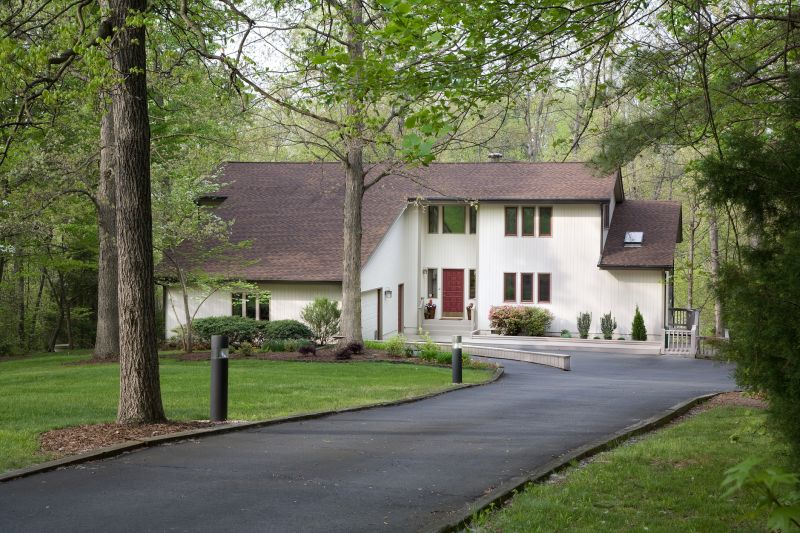Top-Rated Supplies For Driveway Overlay Projects You Need To Consider
Get insights into essential products that ensure a durable and professional-looking driveway overlay.
 Driveway overlay installation can significantly enhance the appearance and functionality of existing paved surfaces. Whether upgrading an aging driveway or addressing surface imperfections, selecting the right products is essential for achieving durable and aesthetically pleasing results. The process often involves applying specialized materials that can bond well with existing concrete or asphalt, providing a smooth, resilient surface that can withstand daily wear and tear. Proper preparation and the right product choices can extend the lifespan of the overlay and improve overall driveway performance.
Driveway overlay installation can significantly enhance the appearance and functionality of existing paved surfaces. Whether upgrading an aging driveway or addressing surface imperfections, selecting the right products is essential for achieving durable and aesthetically pleasing results. The process often involves applying specialized materials that can bond well with existing concrete or asphalt, providing a smooth, resilient surface that can withstand daily wear and tear. Proper preparation and the right product choices can extend the lifespan of the overlay and improve overall driveway performance.
Top Overall Option
High-Performance Concrete Overlay Mix
A versatile and durable overlay mix designed for bonding to existing concrete surfaces. This product offers excellent adhesion, smooth finish, and resilience against cracking and surface wear. Ideal for driveway overlays, it provides a reliable base that can be finished with various textures and coatings to match aesthetic preferences.
Types of Products For Driveway Overlay Installations
Concrete Overlay Mix
Pre-mixed formulations suitable for creating a new surface layer over existing concrete, offering durability and a smooth finish.
Asphalt Patch and Overlay Material
Specialized asphalt compounds designed to fill cracks and add a new surface layer to asphalt driveways.
Bonding Agents and Primers
Adhesive primers that enhance the bond between the existing surface and overlay material, ensuring longevity.
Polymer-Modified Resurfacing Products
Resurfacing compounds reinforced with polymers for increased flexibility and crack resistance.
Sealants and Surface Protectors
Protective coatings that seal the overlay, preventing water infiltration and surface deterioration.
Self-Leveling Overlay Products
Materials formulated to create a smooth, level surface over uneven or rough existing driveways.
Stamped Overlay Products
Overlay materials that can be textured or stamped to mimic pavers, bricks, or stone for decorative purposes.
Crack Filler and Repair Compounds
Products designed to fill and seal cracks before overlay application, ensuring a stable surface.
Epoxy Coatings
Resilient epoxy-based coatings suitable for overlays requiring chemical and stain resistance.
Polyurethane Overlays
Flexible polyurethane materials that provide a smooth surface with high durability.
Liquid Asphalt Emulsions
Emulsified asphalt products used for bonding and sealing overlays on asphalt surfaces.
Fiber-Reinforced Overlays
Overlay mixes incorporating fibers for enhanced crack resistance and structural integrity.
Popular Choices
Widely used for restoring and overlaying existing concrete driveways, offering ease of application and good adhesion.
Comprehensive kits that include patching compounds and overlay materials suitable for asphalt driveways.
Popular primer to enhance adhesion between existing concrete and overlay materials, ensuring a cohesive surface.
Trending for its flexibility and crack-resistant properties, suitable for various overlay applications.
Commonly used to protect overlays from water and surface wear, prolonging the lifespan of the surface.
Popular for creating smooth, even surfaces over uneven or damaged driveways.
Favored for decorative overlays that mimic natural stone or brick textures.
Essential for preparing surfaces before overlay application, ensuring stability and longevity.
Chosen for its high durability and chemical resistance, suitable for high-traffic driveways.
Flexible overlays that accommodate slight ground movement, reducing cracking.
Popular for sealing asphalt overlays and providing water resistance.
Increasingly used for its enhanced crack resistance and structural support.
Various products are available to facilitate driveway overlay installations, including patching compounds, bonding agents, sealers, and overlay mixes. These materials are designed to adhere effectively to existing surfaces, fill in cracks and imperfections, and provide a solid base for the overlay layer. The selection of products depends on factors such as the condition of the existing surface, desired finish, and environmental conditions. Using high-quality, compatible materials can help ensure a seamless application and long-lasting results.
Installation techniques and product compatibility are crucial considerations. Some overlays may require specific primers or bonding agents to enhance adhesion, while others may be formulated for quick setting to minimize downtime. Surface preparation, including cleaning and repairing cracks, is often necessary before applying overlay products. Proper application methods, whether by trowel, spray, or roller, can influence the final appearance and durability of the driveway overlay.
Investing in the right products for driveway overlay projects can lead to improved surface resilience, reduced maintenance needs, and an enhanced curb appeal. It's important to evaluate product specifications and compatibility with existing surfaces to select the most suitable options. Consulting product guidelines and manufacturer recommendations can help ensure a successful installation that meets your specific needs and expectations.
Key Buying Considerations
- Compatibility with existing driveway surface (concrete or asphalt).
- Surface condition, including cracks, pitting, or unevenness.
- Desired finish and texture, such as smooth, stamped, or textured.
- Weather conditions during installation and curing period.
- Ease of application and required tools or equipment.
- Drying and curing times to plan project schedule.
- Bonding properties and adhesion strength of the product.
- Durability and resistance to cracking, wear, and surface deterioration.
- Water resistance and sealing capabilities.
- Compatibility with other surface treatments or coatings.
- Environmental conditions that may affect product performance.
- Availability of repair and maintenance products for future touch-ups.
- Manufacturer instructions and recommended surface preparation procedures.
- Budget considerations and cost per square foot.
- Safety precautions and handling requirements for the products.
